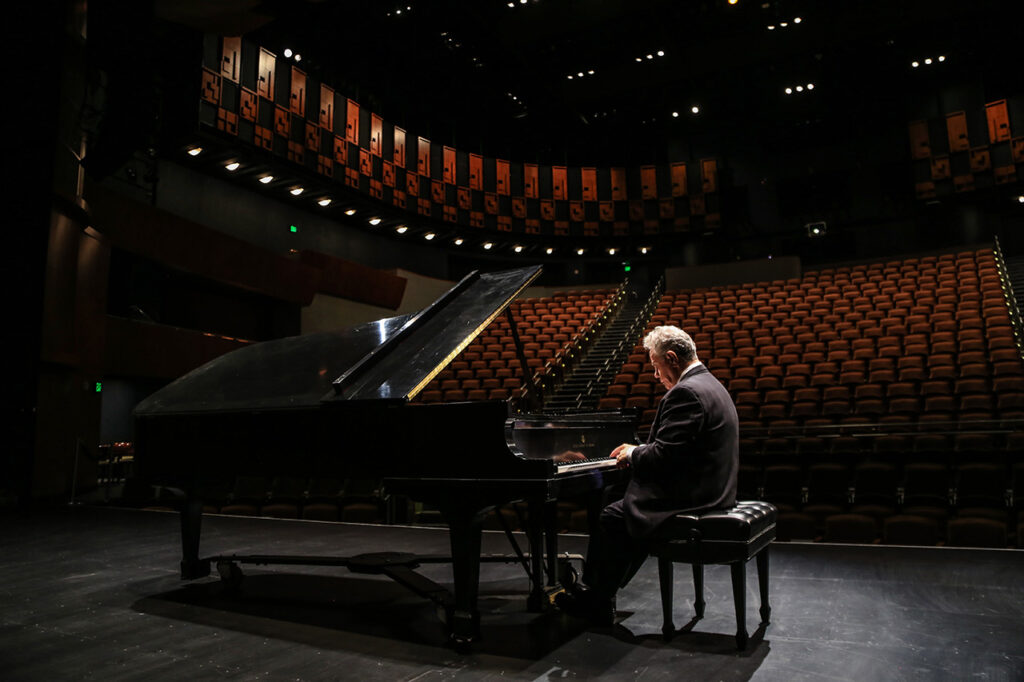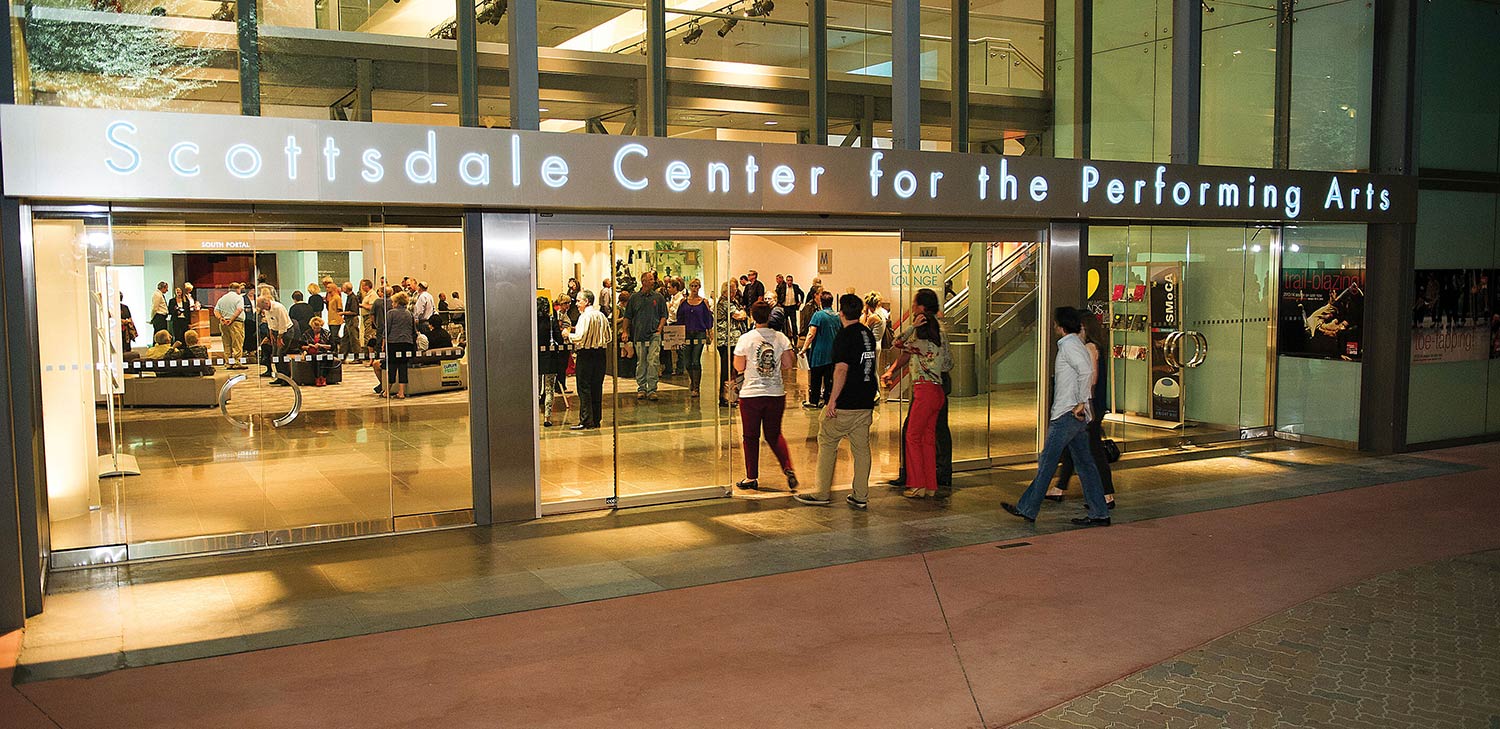
FOR IMMEDIATE RELEASE: Dec. 15, 2023
MEDIA CONTACT: Brian Passey | [email protected] | 480-874-4626

SCOTTSDALE, Ariz. — In 2025, Scottsdale Center for the Performing Arts will celebrate its 50th anniversary. And for almost as many years, one artist has been a perennial performer at the center: Jeffrey Siegel.
The 2023–24 season marks Siegel’s 45th season presenting his signature Keyboard Conversations at the center. On Dec. 5, the classical pianist will offer to the Scottsdale audience a program based on the works of Chopin and Liszt, interspersed, as is customary, with Siegel’s deeply researched, effortlessly engaging and occasionally humorous commentary. As usual, a fast-paced question-and-answer session will follow as Siegel responds to queries from the audience.
“One of the highlights for me in doing the series at Scottsdale Center for the Performing Arts is the Q and A that concludes the program, in which the audience is encouraged to ask whatever questions they might wish to ask,” Siegel said. “One night a boy of 10 or 11 spoke up and asked, ‘How many hours a day did Beethoven have to practice?’ and this brought down the house!”
Siegel, whose commentaries have been favorably compared to the revolutionary on-stage talks of his one-time acquaintance Leonard Bernstein, started Keyboard Conversations 55 years ago at Northwestern University in Evanston, Illinois. They were presented there by the late Dayton Grafman, who eventually moved to Scottsdale and introduced the concept at Scottsdale Center for the Performing Arts.
Siegel said the center’s Virginia G. Piper Theater is an ideal place for Keyboard Conversations because of its “wonderful” acoustics, intimate seating, experienced stage crew and ideal lighting and sound.
Siegel’s 45th season at the center includes the following presentations:
- Chopin and Liszt — Dec. 5, 2023: Siegel notes that many works by these two composers are known to millions who have never stepped foot in a concert hall.
- The Power and Passion of Beethoven — Jan. 9, 2024: This program, which includes the “Appassionata” and “Sonata for Theresa,” features music written as the composer was coming to terms with his deafness.
- A French Musical Feast — Feb. 6, 2024: Including music written by several composers, this program is meant to “enchant and delight the ears,” with beloved tunes like Debussy’s “Clair de lune.”
- Three Great Romantics — March 5, 2024: The final Keyboard Conversation of the season has “fabulous” short pieces by Tchaikovsky, Brahms and Grieg — three popular composers who were only ever in the same room one time: New Year’s Day 1888.
Those intrigued by the story of that final concert will have to attend to hear it from Siegel himself.
“We’ve been putting Jeffrey’s performances on stage for nearly half a century because his analysis of the music and stories behind the composers are uniquely intriguing,” said Abbey Messmer, programming director at the center. “And he’s gained long-term followers through this captivating recipe of playing, storytelling and connecting to the community.”
Siegel noted that in a predominantly digital age, the music of great composers offers a nourishing, deeply affecting experience that is necessary now more than ever. He said he is often touched to see an audience of all ages at his shows, including novices who might be attending their first classical music concerts.
“In this day and age, the need to enrich people’s lives with great music is even greater than when I started at the center 45 years ago,” Siegel says.
All Keyboard Conversations with Jeffrey Siegel concerts begin at 7:30 p.m. in the Virginia G. Piper Theater at Scottsdale Center for the Performing Arts, 7380 E. 2nd St., Scottsdale, Arizona. Tickets start at $26. For information, visit ScottsdalePerformingArts.org/events.
Keyboard Conversations with Jeffrey Siegel is sponsored by the Dr. David and Joan Goldfarb Trust.

